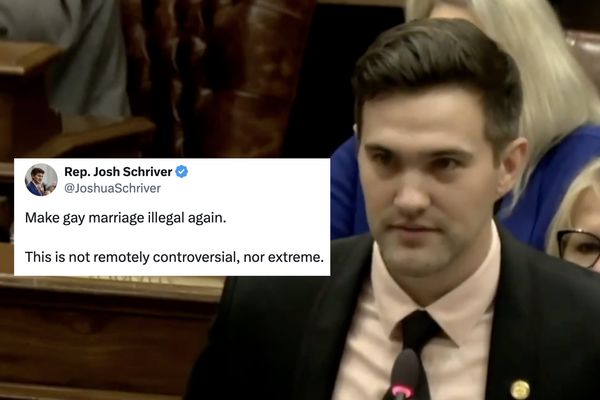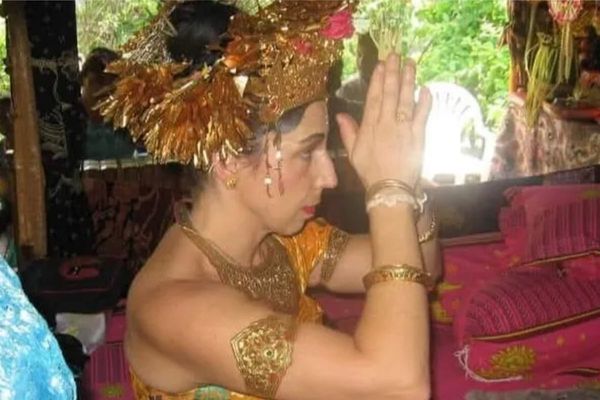
Timor-Leste is facing a dreadful reckoning with the scourge of child sexual abuse after revelations that one of its revolutionary heroes, Nobel prize laureate and former bishop of Dili Carlos Ximenes Belo, has faced multiple accusations of having sex with young boys.
Last week, after a decades-long investigation by Dutch newspaper De Groene Amsterdammer, it emerged that Belo had been secretly sanctioned by the Vatican in 2020 after allegations were brought to its attention.
The revelations raise questions about who knew what and when at the most senior levels of Timorese politics. Belo shared his 1996 Nobel prize with the country’s current president, José Ramos-Horta, although there has been no suggestion he knew of Belo’s alleged activities.
Belo abruptly resigned as bishop in 2002, aged 54, citing ill health and exhaustion, bringing to an end his career in the church and potentially politics. He retreated to Mozambique, like Timor-Leste another former Portuguese colony, to work with missionaries.
He later moved to Portugal where he remains, living with his order, the Salesians, and under travel restrictions imposed by the Vatican. He will never again hold a senior church role.
The newspaper report used case studies of two men who alleged they had sexual relations with Belo when they were 14 and 16 during the 1990s. The allegations include one case of rape. Both said they were given money by the priest. The paper said it had allegations from at least 20 people dating back to the time that the bishop was a simple priest.
“From the research carried out by De Groene, it appears Belo had more victims,” the story said. “De Groene spoke with 20 people with knowledge of the case: dignitaries, government officials, politicians, NGO workers, people from the church and professionals. More than half of them personally know a victim, while others know about the case, and most discussed it at work. De Groene also spoke with other victims who didn’t want to tell their story in the media.”
The topic of child sexual abuse is completely taboo in Timor-Leste, but spoken about in whispers. During several reporting trips to the country in the past decade, this reporter was told about the accusations by priests, people in politics, some working for NGOs and other journalists who had tried — and failed until now — to get victims to talk.
Belo is not the first priest in the country to face accusations of child sexual abuse. In 2018, accusations surfaced in local online news site Tempo Timor, about American priest Richard Daschbach, now 85, who ran an orphanage in a remote pocket of the country, Oecusse, and was found to have abused young girls on a daily basis.
After much to-ing and fro-ing he was investigated by his order and eventually defrocked by the Vatican; after a long battle by rights advocates he was eventually tried and imprisoned for 12 years in 2021. But along the way he was protected from within and outside the church.
Strong political connections
Daschbach has lived in Timor-Leste since 1986 and, like Belo, he had supported Timorese rebels in their 24-year battle against Indonesia and has strong political connections.
The church still wields significant social, political and spiritual power, and priests are revered. The culture of cover-up and even support for child sex abusers goes right to the top in the deeply conservative country that wholeheartedly embraced Catholicism — first brought by Portuguese missionaries 500 years ago — after its takeover by Indonesia in 1974.
Daschbach’s political connections were on display as his victims struggled for years to bring him to justice. He was visited by senior politicians including, in March 2018, Prime Minister Taur Matan Ruak and his wife, Isabel da Costa Ferreira (who is politically powerful in her own right), both practising Catholics (unlike many others in senior political roles in the country). At the time Ruak was an ex-president and political leader but not yet PM.
Crikey is not suggesting that the prime minister or his wife knew about Daschbach’s crimes before he was investigated and defrocked.
In early 2021, Timor-Leste’s revolutionary hero and former leader Xanana Gusmao made a public — and ultimately ill-advised — display of support for the American.
In early 2021, before Daschbach’s trial, Monash University Professor Sara Niner wrote: “At the very well-publicised ‘birthday party’ held in the home of a diehard Catholic supporter, Gusmao embraced and hand-fed Daschbach birthday cake, and tipped champagne into his mouth. The visit has been interpreted as a heavy-handed attempt to whitewash Daschbach’s ruined reputation just before the court case commences, and intimidate the prosecution, and the young witnesses who are in hiding due to just this sort of pressure.”
Advocates and legal representatives for victims have often been verbally attacked.
Priests have raised concerns about other clerics particularly in the countryside having children living with them in inappropriate situations.
The country’s leading cleric, Dili Archbishop Virgilio do Carmo da Silva, was named a cardinal this year and during the Daschbach saga stood up to his supporters in the church. They were later cleared of any criminal activity. But he faces a far tougher situation with Belo who has enormous local support, evidenced by the decades of silence.
Multiple people in Timor-Leste have told Crikey that rampant child sexual abuse in the country is not limited to clerics but is, effectively, a cultural problem. Any reckoning will be deeply traumatic for the young nation whose economic future is also uncertain.
Clearly the best way forward for the country would be a public truth-telling along the lines of Australia’s Royal Commission into Institutional Responses to Child Sexual Abuse, which is held up as a model for other nation’s grappling with the issues.
But given the innate resistance in Timor-Leste to even talking about child sexual abuse, and the clear institutional resistance that has been on display, that could be along way off. There is some irony in the fact that it may well have to be the Catholic Church that leads the way.
Pope Francis has taken a far more aggressive approach than his predecessors and his investigation and taking down of former American cardinal Theodore McCarrick — who was found to have a decades-long history of abusing teenage boys and is now facing criminal charges — is a model that advocates want followed.







